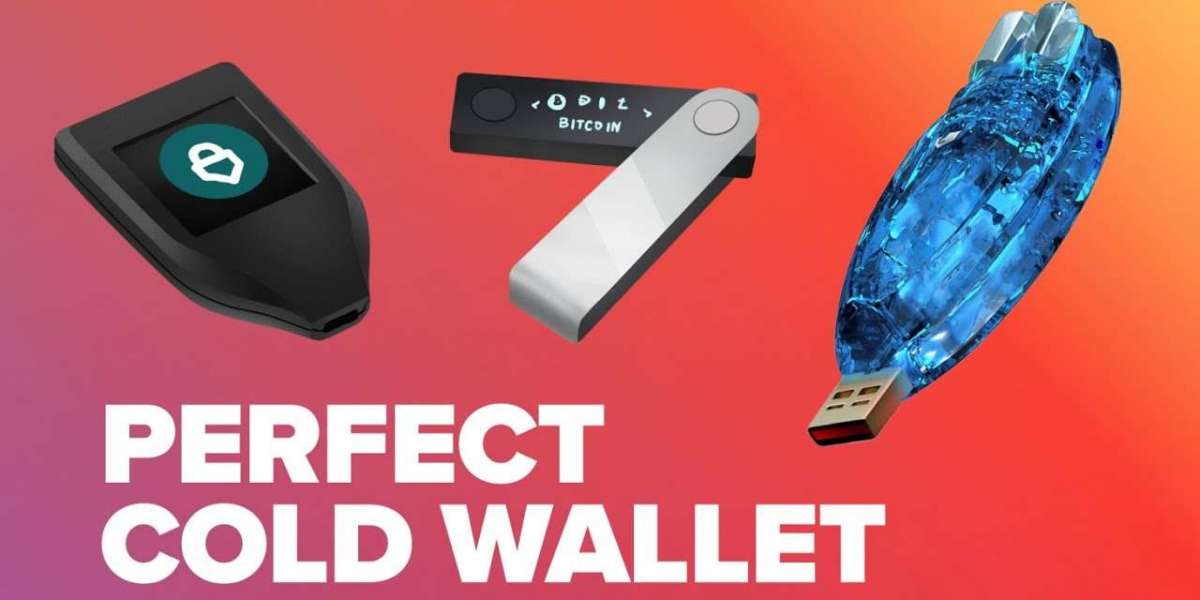As cold wallet crypto becomes an increasingly significant part of the global financial landscape, securing your digital assets has never been more critical. One of the most effective ways to protect your cryptocurrency from online threats is by using a cold wallet. In this article, we will explore what a cold wallet is, how it works, and why it’s an essential tool for anyone serious about crypto security.
What is a Cold Wallet?
A cold wallet, also known as cold storage, is a type of cryptocurrency wallet that stores your private keys offline. Unlike hot wallets, which are connected to the internet and are therefore more vulnerable to hacking, cold wallets are not connected to the internet, making them much safer from online threats.
Cold wallets can take various forms, including hardware wallets, paper wallets, and even air-gapped computers. The primary goal of a cold wallet is to keep your private keys secure by isolating them from any potential online vulnerabilities.
How Does a Cold Wallet Work?
Cold wallets work by generating and storing your private keys in an environment that is completely disconnected from the internet. Here’s a breakdown of how cold wallets function:
Offline Key Generation: When you set up a cold wallet, it generates your private keys in an offline environment. This means that your keys are never exposed to the internet, reducing the risk of them being stolen by hackers.
Transaction Signing: To send cryptocurrency from a cold wallet, you typically connect the wallet to an internet-enabled device (such as a computer or smartphone) to initiate the transaction. However, the signing of the transaction (which requires access to your private keys) occurs entirely within the cold wallet. Once the transaction is signed, the data is sent back to the connected device, which then broadcasts it to the blockchain.
Physical Security: Since cold wallets are often physical devices or paper, the security of your wallet also depends on how well you protect the physical object. Storing your cold wallet in a safe place, such as a safe or vault, is crucial to ensuring its security.
Types of Cold Wallets
There are several types of cold wallets available, each with its own advantages and drawbacks:
Hardware Wallets
- Overview: Hardware wallets are physical devices specifically designed to store cryptocurrency securely. They are among the most popular forms of cold storage due to their ease of use and robust security features.
- Popular Options: Ledger Nano X, Trezor Model T, and Coldcard Wallet.
- Advantages: High level of security, user-friendly interfaces, and support for multiple cryptocurrencies.
Paper Wallets
- Overview: A paper wallet is a physical printout of your private and public keys. It’s one of the most secure forms of cold storage because it’s entirely offline and not susceptible to digital attacks.
- Advantages: Completely offline, easy to create, and very low cost.
- Drawbacks: Can be easily lost or damaged, and requires careful handling to ensure security.
Air-Gapped Computers
- Overview: An air-gapped computer is a device that has never been connected to the internet. You can use it to generate and store your private keys, ensuring they are never exposed to online threats.
- Advantages: Extremely secure if properly managed, as it remains isolated from any network.
- Drawbacks: Requires technical knowledge to set up and maintain.
Why Use a Cold Wallet?
Cold wallets are considered the gold standard for cryptocurrency security. Here are some reasons why you should consider using a cold wallet:
Protection from Online Threats: Since cold wallets are offline, they are immune to hacking, phishing attacks, and other online threats that can compromise hot wallets.
Long-Term Storage: Cold wallets are ideal for storing cryptocurrency over the long term. If you plan to hold your assets for years without frequent transactions, a cold wallet provides the security and peace of mind you need.
Control Over Your Private Keys: With a cold wallet, you have full control over your private keys. This means that only you have access to your cryptocurrency, unlike storing it on an exchange where the platform holds your keys.
Mitigation of Human Error: Cold wallets reduce the risk of human error, such as falling for phishing scams or accidentally exposing your keys to malware, which are more common with hot wallets.
Best Cold Wallets for Crypto in 2024
Several cold wallets stand out in 2024 for their security, usability, and support for various cryptocurrencies. Here are some of the best options available:
Ledger Nano X
- Overview: The Ledger Nano X is a leading hardware wallet that supports over 1,800 cryptocurrencies. It features Bluetooth connectivity for mobile use and includes a secure chip to protect your private keys.
- Why It’s Great: The combination of robust security features, ease of use, and extensive cryptocurrency support makes the Ledger Nano X a top choice for cold storage.
Trezor Model T
- Overview: The Trezor Model T is known for its advanced security features and user-friendly touchscreen interface. It supports a wide range of cryptocurrencies and integrates with various third-party apps.
- Why It’s Great: Trezor’s reputation for security, combined with the Model T’s intuitive design, makes it a reliable choice for those looking to store their assets securely.
Coldcard Wallet
- Overview: The Coldcard Wallet is a Bitcoin-only hardware wallet designed for maximum security. It’s air-gapped, meaning it can be used without ever being connected to a computer or network.
- Why It’s Great: For Bitcoin enthusiasts who prioritize security above all else, the Coldcard Wallet offers unparalleled protection and advanced features like multisig support.
Ellipal Titan
- Overview: The Ellipal Titan is a fully air-gapped hardware wallet that supports over 10,000 tokens and coins. It’s designed to be tamper-proof and uses QR codes for transactions.
- Why It’s Great: The Ellipal Titan’s rugged design and air-gapped functionality make it an excellent choice for users who need both security and durability in a cold wallet.
How to Securely Manage a Cold Wallet
While cold wallets provide excellent security, it’s essential to manage them properly to ensure your assets remain safe:
Backup Your Recovery Seed: When setting up a cold wallet, you’ll receive a recovery seed, which is a series of words that can be used to restore your wallet. Store this seed in a secure location, such as a safe or a secure document, and never share it with anyone.
Use a Strong Passphrase: If your cold wallet supports it, use a strong passphrase in addition to your PIN. This adds an extra layer of security.
Keep the Wallet Safe: Store your hardware wallet, paper wallet, or air-gapped computer in a secure physical location, such as a safe or a locked drawer. Avoid carrying it around unnecessarily.
Regularly Update Firmware: For hardware wallets, ensure you regularly update the firmware to protect against any newly discovered vulnerabilities.
Conclusion
Cold wallets are an essential tool for anyone serious about protecting their cryptocurrency. By storing your private keys offline, they provide a high level of security against online threats, making them ideal for long-term storage of digital assets.
Whether you choose a hardware wallet like the Ledger Nano X or Trezor Model T, or opt for a paper wallet or air-gapped computer, using a cold wallet can give you peace of mind knowing that your cryptocurrency is safe. In the ever-evolving world of digital finance, investing in a cold wallet is a smart move to secure your wealth for the future.







